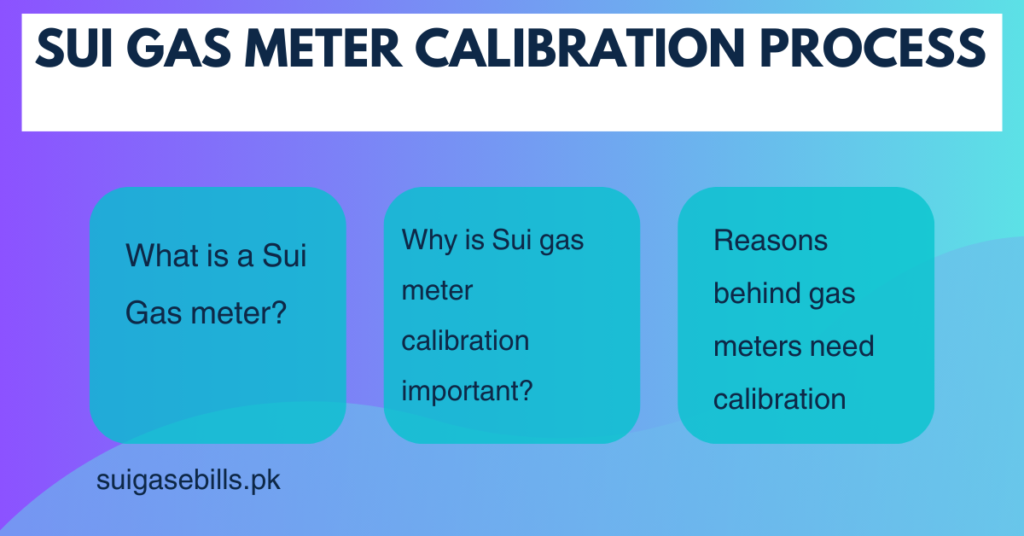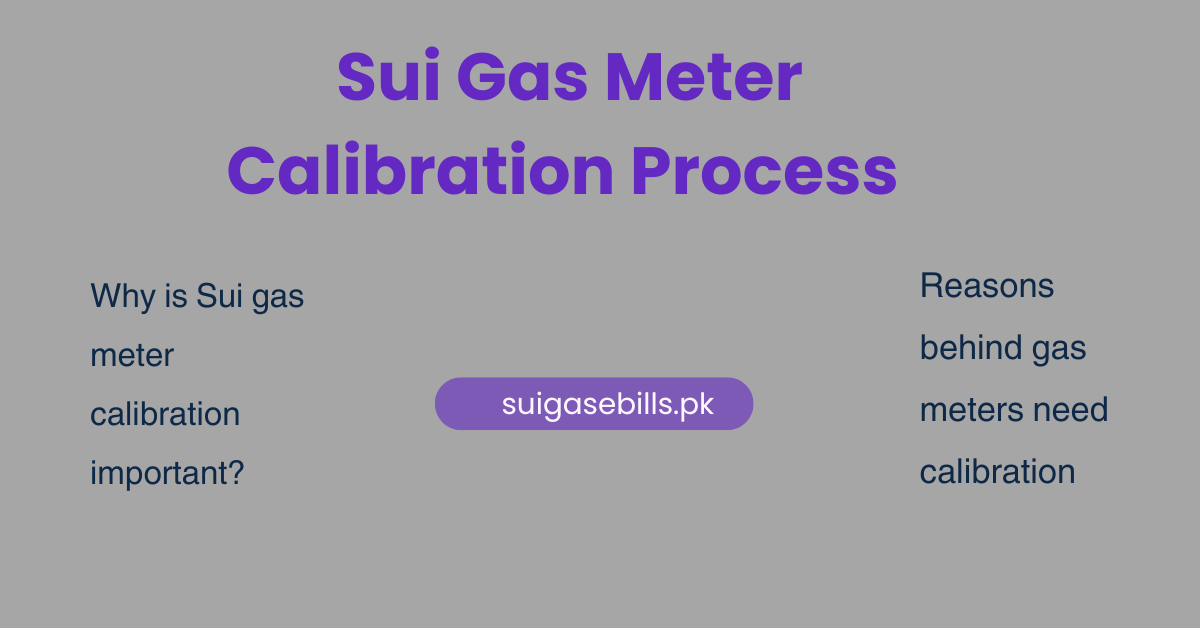Sui gas meter plays a very important role in business and home Sui gas usage measurement in Pakistan, where most of the people are the users of Sui gas. It is very necessary for them to have a Sui gas meter that measures their gas usage properly so that the customer will be prevented from overbilling or under billing. But due to some factors, the meter will start providing wrong readings, which result in overbilling or underbilling. To prevent these problems, it is necessary to undergo the calibration process so that you may not face any problems.
In this informative article, we are going to introduce you to the calibration process and explain why it is important, so let’s delve into the details.
Table of Contents
ToggleWhat is a Sui Gas meter?
Gas meters are the devices that are installed outside the customer’s home that will measure that usage of natural gas, and on the basis of usage, the customer’s will be charged for the natural gas usage. In Pakistan, where most every house and business uses natural gas, there are two natural gas-providing companies, Sui Northern Gas Pipelines Limited (SNGPL) and Sui Southern Gas Company (SSGC).
There are 3 types of Sui gas meters.
- Diaphragm meters
- Rotary meters
- Turbine meters
Why is Sui gas meter calibration important?
The work of a sui gas meter is to measure gas consumption and provide accurate meter readings so that customers will get the correct billing of their gas usage, but overtime and due to some environmental factors, the meter may drift or it may provide the wrong meter reading, which results in overbilling or underbilling, so it is necessary to perform the calibration process.
Reasons behind gas meters need calibration
Malfunctioning of components: components used in the gas meter due to long-term usage may cause malfunctioning.
Environmental Factors: Environmental factors are also responsible for the malfunctioning in the gas meter, like temperature change.
Consumer protection: regular calibration is necessary so that the customers will be charged fairly.
Calibration process
What is calibration?
Calibration of a gas meter involves comparing the meter reading of the Sui gas meter to the known standards. The following is the calibration process.
Pre-Calibration Inspection
Before starting the calibration process, the technician will inspect your meter so that they will ensure that your meter is in good health; if not, they will immediately respond to you. During the inspection, the technician will check the following things:.
- Physical damage
- External blockages
- Connections
Set Up the Calibration System
After performing a proper inspection, he will set up their calibration system to start the process.
- He will set up a calibration bench that holds a gas meter.
- A reference meter will provide accurate meter readings.
- Controlled gas: controlled gas will allow it to pass through the reference meter and the meter, which is calibrated so that meter measurement will be taken correctly.
Read Also: Sui Gas Billing Cycle: A Complete Guide
Perform the calibration.
Once the calibration instruments are set up, the technician will perform calibration by passing gas in both the reference meter and the original meter. This process is performed several times so that the measurements will be taken. During calibration, 3 types of flow rates will be checked.
Low flow rate: during calibration, a small amount of gas will be passed through the meter so that that low flow rate of the gas will be measured.
Medium flow rate: A medium amount of controlled gas will be passed through the meter that will measure the medium flow rate of the meter.
High flow rate: a high amount of gas will be passed so that a high amount of measurement will be taken, especially at high flow rates during the winter.
Adjustment of the Sui Gas Meter
If your gas meter is showing any kind of error or showing a different reading from the reference meter, then it will be adjusted. adjustment may involve.
- Replacing worn parts
- Cleaning internal components of the meter
Post-Calibration Testing
After completing the calibration process, the meter will be retested, and their different flow rates will be checked so that it will be ensured that the measurements will be according to the reference meter and are accurate after the adjustment process. If there is no error shown, then the calibration process will be considered completely.
Certification
After the completion of the calibration process, a certificate will be issued to the customer, which shows that the meter is fit and has no errors, and the date for the next calibration is also listed on the certificate so that, due to regular calibration, your meter will stay updated and free from errors.
Related Info: Digital Sui Gas Meters Future| Best Installation
Importance of meter calibration
It is very important for the meter to undergo a calibration process from time to time so that meter will remain updated and free from errors. If your meter is regularly calibrated, you will have two benefits.
Prevented from Overcharge: If your meter is calibrated on a daily basis, you will be prevented from overcharging because your meter is showing an accurate reading of the gas usage.
Prevented from undercharge: a regularly calibrated meter will also prevent you from undercharge, which is also beneficial for both the company and customers.
FAQs About Sui Gas Meter
After how much time does the does the gas meter require calibration?
The time for the calibration depends on the meter type and age; most of the meters will require calibration after 5 to 10 years so that meter will remain updated. While industrial meters, due to their usage, require calibration processes after 1 to 2 years for their maintenance.
Is the calibration process necessary?
Yes, the calibration process is very necessary so that you will be prevented from overbilling and underbilling.
What are the reasons behind underbilling and overbilling?
There are many reasons behind the overbilling and underbilling; here are a few main reasons.
- In old meter parts got worn
- Some environmental factors are also responsible.
- Dirt in the internal components
These are a few reasons that cause errors in the meter, which results in over- and under-billing. To prevent these problems, calibration is necessary.


